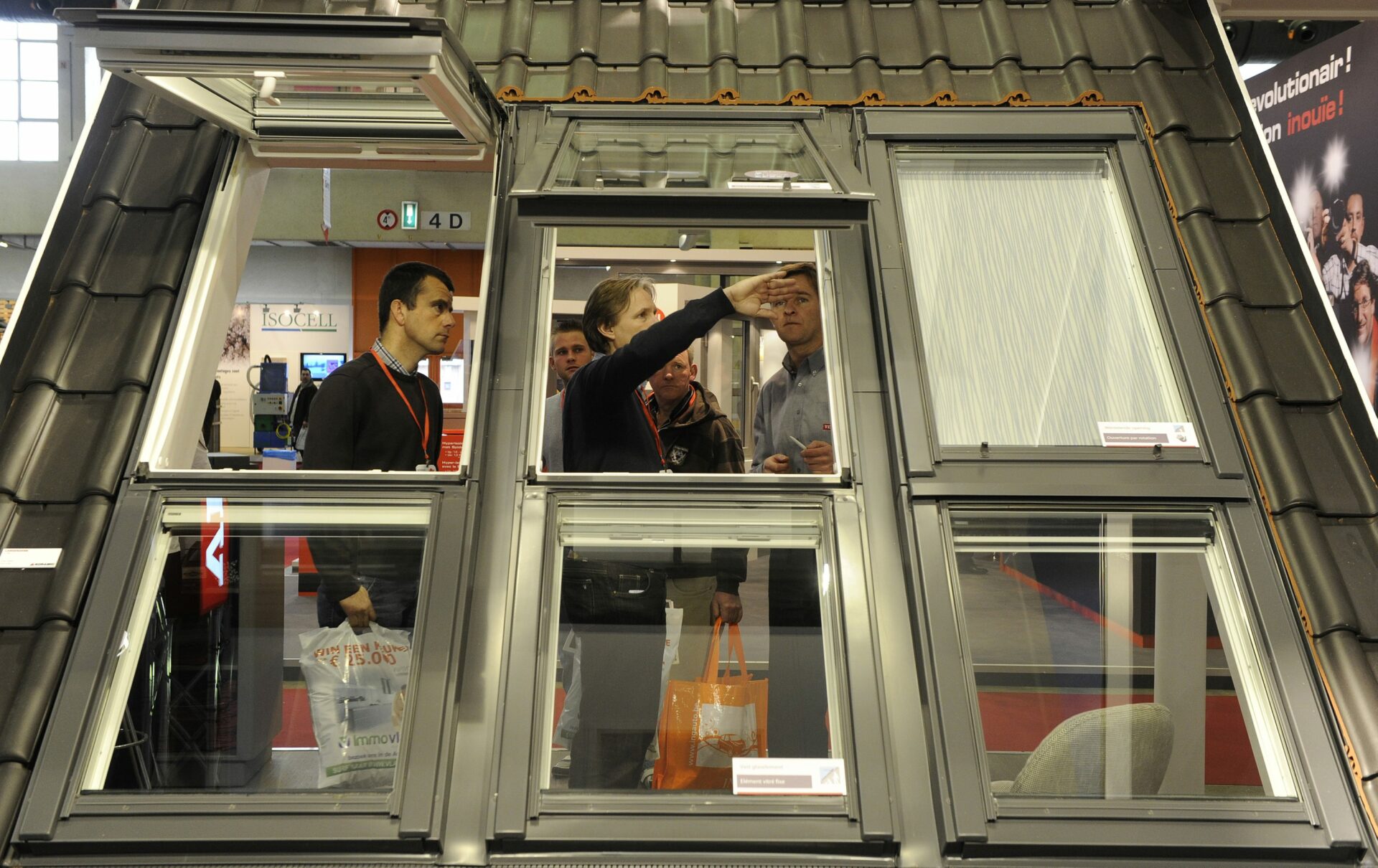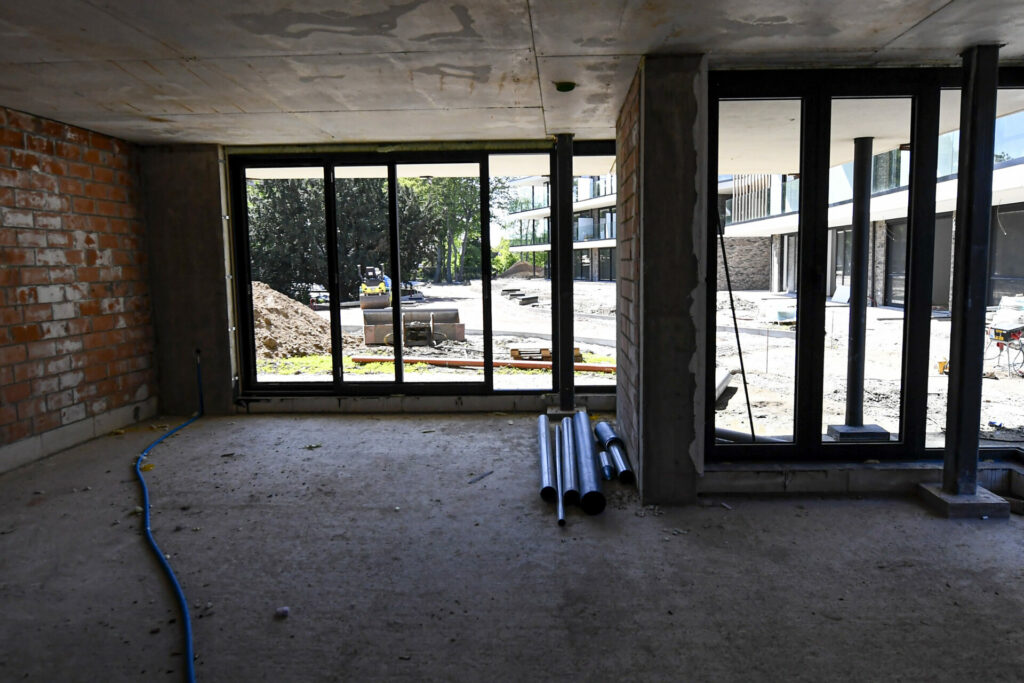When looking to purchase a property, an increasing number of potential buyers are looking for houses and flats with a good energy performance certificate (EPC). However, many of the properties for sale in Belgium are not living up to expectations.
The certificate shows how energy-efficient a building is using an energy score (A is the highest, and F or G is the lowest, depending on the region). It indicates the energy consumption per square metre of floor area (kW/m²), and the lower it is, the more energy-efficient the home is. This also means that less energy is required to heat the house, which is also associated with lower energy costs.
Across the country, 28.2% of houses and flats – put up for sale on the real estate website Immoweb in the past 12 months – have an EPC score lower than E, research by the platform showed.
The research highlighted that there are large differences when comparing the regions, but also between the provinces. Immoweb noted that, in Flanders, the percentage of properties with a poor EPC score was the lowest (25.1%), followed by Wallonia (30.2%).
In Brussels, where salaries are among the lowest in the country and where households that would benefit more from energy-efficient homes, as much as 40.3% of properties for sale had a poor ranking.
On a provincial level, Brussels again scored worst, followed by Hainaut (34.2%) and Namur ( 31.9%). The top three provinces where the fewest homes with a poor EPC score are for sale were Walloon Brabant (19.9%), Antwerp (20,2%) and West Flanders (25.1%).
Difficult to compare
Immoweb did note that it is difficult to compare the three regions because the labels are not uniform across regional borders, and the calculation methods and evaluation scales differ significantly between regions.
Firstly, there is no conclusive definition to determine from which score a property has a "bad" EPC score, so Immoweb calculated the percentages based on the EPC scales of the regions.
All properties with an EPC score within the two lowest-performing labels in the regional scales are homes with a score of F or G in Brussels and Wallonia; while in Flanders, all dwellings with a score of E or F were considered "poor".
Brussels also uses the system, which offers a detailed description of all materials and installations used in a new construction or renovation. It also checks whether the home meets the energy requirements, rather than estimating the energy consumption.

An installation at BATIBOUW providing information about insulation. Credit: Belga/ Benoit Doppagne
Additionally, in Brussels, a house with an energy value of 275 kWh/m²/year is awarded an EPC score of F. In Wallonia, however, an F label is only awarded from 425 kWh/m²/year, while Flanders awards an E label from an energy value of 400 kWh/m²/year.
"To compare, there is a need for a more consistent scale for comparing energy efficiency," Immoweb argued. It therefore harmonised a standardised scale at the Brussels level, which is the strictest EPC scale.
If the harmonised scale is used, the national average is not 28.2% but 50.5%, while the tide shifts and Brussels' by comparison scores better, while many properties in Belgium's biggest cities such as Antwerp (32.3%), in Ghent (36.7%), in Liège (55.4%) and in Charleroi (68.7%) receive bad scores.
Delusive decrease?
Since 2012, there have been fewer and fewer homes with a bad EPC score in all three regions, a decrease that can partly be attributed to improvements in the energy efficiency of homes, especially as a result of renovation works. However, the decline can also be explained by the tendency of homeowners not to disclose the EPC score when it is unfavourable.
"Indeed, the market has become more sensitive to that score in recent years. On our website, the EPC score is not mentioned in an average of 24.9% of Brussels property ads. In Wallonia and Flanders, 18.2% and 19.4% of sellers respectively do not mention the value," Immoweb noted.
In Brussels, the number of homes with poor EPC scores on sale increased from 39% in January 2021 to 41% in September 2023. This can be explained by the fact that more EPC ratings were added to the website (+31% in the period between January 2021 and September 2023).
"Since the energy crisis, buyers have been paying more attention to the energy performance of their homes," said Jonathan Frisch, home economist at Immoweb. "As a result, homeowners are obliged to be transparent about the energy performance of their properties."
The second possible reason for the increase in homes with poor EPC scores could be attributed to the evolution that more and more owners are looking to sell their homes rather than renovate them, meaning there is a growing supply of homes with a poor EPC score coming onto the market.
Immoweb also noticed a clear correlation between the number of properties with a poor EPC score and regional regulations. "Each time there was a new obligation to include the energy label in property ads, the number of homes with a poor score increased," the company concluded.

